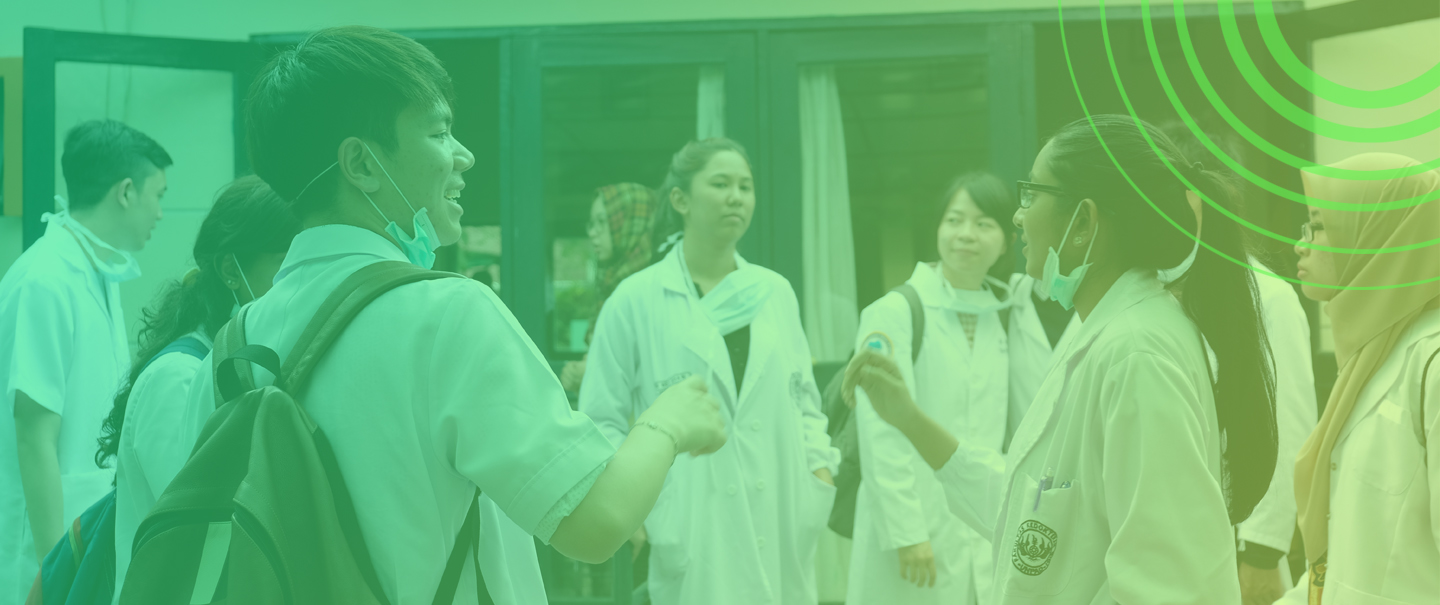Courses and Learning Outcomes
Courses
Digital Transformation in Education and Clinical Settings (Overview)
Digital transformation is inevitable in all sectors of the world because of the accelerating development of technology, including health education and clinical work. The pandemic is stimulating to improve technology, particularly in the health study and treatment that gives great benefit to humans. Thus, lectures within this sub-topic aim to present the knowledge to the students about the application of digital transformation in the health education field that can be implemented to the students for studying or training skills. Furthermore, advanced technology can be demonstrated to students in clinical settings as a new experience.
- CADCAM
- Robotics
- Potentials/ benefits
- Mentioning AI/ VR/ Simulators
- Transition from “analog” to “digital”
Digital Transformation for Patient’s Health Education
During the pandemic COVID-19, face-to-face interaction was limited, yet the need for healthcare drastically increased. This unbalanced demand forced clinicians and health officers to discover solutions to serve the patients. New technology and digitalization were adapted to fit in this new era. Nowadays, the digital transformation with the patients consists of the utilization of e-health applications, virtual consultation, and the application of newer inventions such as artificial intelligence. Lectures within this sub-topic aim to demonstrate various innovations that have been applied and might have the potential to be developed in the future. These solutions are beneficial for the current crisis and adopted beyond the pandemic COVID-19.
Artificial Intelligence Assisted Clinical Practice
Artificial intelligence (AI) has been rapidly growing and influencing clinical practice in the last decade. AI technology analyzes patient data to predict diagnosis and indicates treatment planning. The purpose of this topic is to introduce the current development of artificial intelligence used both in medical and dental practice. Moreover, the merit and limitation of AI can be portrayed to the students as challenging innovations of AI in the future.
The Prospects of Digital Simulators in Medical and Dental Education
Digital simulators such as virtual reality (VR) and augmented reality (AR) have become increasingly extensive in medical and dental education. This technology is primarily applied to substitute conventional methods for teaching preclinical training and clinical skills. Besides, the development of AR has altered the form of dental promotion in community service. Furthermore, the application of VR in education is more convenient and more accessible because the students are familiar with this technology. Lectures within this sub-topic aim to encourage students to explore digital simulators that can be applied in education.
Ethical Issue in Digital Transformation
Digital transformation has allowed the most significant impact on science and society, either positively or negatively. Therefore, the ethical issue of digitalization is interesting to be discussed in the academic field. It can arise on mostly novel technology, for instance, in medical science, dental science, genetic engineering, and informatics. Furthermore, the progression of artificial intelligence might be an example of the issue that technology development requires harmony among moral ethics, science, and humanity. The purpose is to understand the students about ethical issues that will appear throughout the development of digital technology.
Learning Outcomes
Based on the learning scope, the Learning Outcomes (LO) of this program are as follows:
● Participants can understand the current digital transformation, both in its application to education, as well as in clinics and patient care.
● Participants can understand the importance of digital transformation innovation, future development opportunities, and challenges.
● Participants can provide ideas about digital transformation applications that can be done, especially in improving psychomotor abilities/skills lab.

